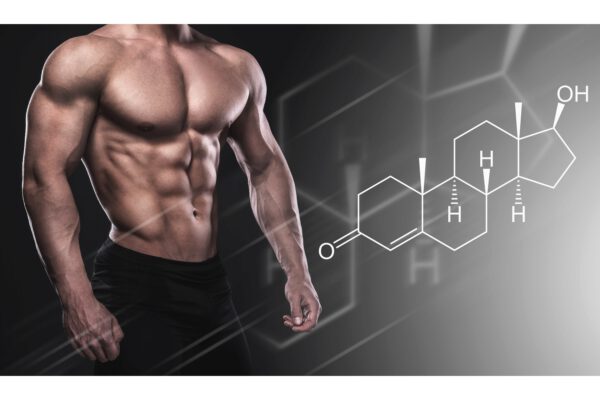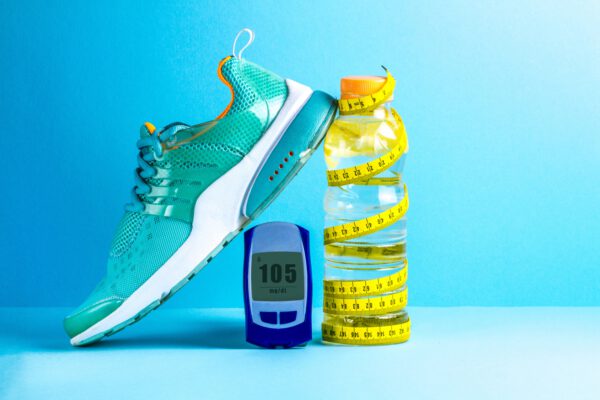The Hormonal Effects of Exercise
Most of us exercise because we want to look better. It’s not that we’re vain, but losing some flab around the butt or packing mass onto our pecs makes us feel more confident and proud to live inside our bodies. Yet, though we may not realize it, the greatest benefit of regular exercise is that it positively affects our hormones, which results in some pretty amazing internal changes.
Your hormonal system controls everything that goes on in your body. It regulates your blood sugar – if it’s either too high or too low, then your hormones are out of balance. It also controls your bowel function. Constipation and irritable bowel syndrome are both related to hormone regulation. It even controls your body weight. If you’re one of those people who put on weight just by looking at food, it’s a sign that your hormonal system is unbalanced. It’s the same thing if you continually eat but cannot gain weight.
Hormones regulate cellular activity. They either stimulate or block certain reactions. They are also used to repair and rebuild muscle cells and are closely related to energy production.
The hormonal system is profoundly affected by exercise. In fact, every time you work out, you are positively affecting at least 18 different hormones. Exercise stimulates growth hormones. It also stimulates tissue growth, which helps to slow down the aging process. In addition, exercise initiates the hormonal process which mobilizes fatty acids as a source of extra energy, stimulating fat breakdown and helping to balance blood sugar levels.
The endocrine system is responsible for releasing hormones from glands into the body’s circulation. These hormones act on specific receptors to perform a number of functions during and after exercise. These include:
- Regulating cell metabolism
- Facilitating the cardiovascular response to exercise
- Facilitating the transportation of hormones, such as insulin, cross cell membranes
- Modulating protein synthesis to repair muscle after exercise
Any time you exercise, you change the structure of your cells. Hormones are required to help the body make these changes.
The initial changes brought on by exercise are neural adaptations. The body will learn to use more motor units more effectively and recruit more muscle fibers. These are short-term adaptations that are controlled by the nervous system.
Long-term adaptations require that your cells develop receptor sites that are able to cling onto the increased levels of hormones that are produced by the exercise. This takes time.
As a result of the need for cells to develop receptor sites to uptake the increased flow of hormones produced by exercise, the longer you have been exercising the more efficient your body becomes at utilizing the hormones that are stimulated by exercise.
A workout you should try:
Endorphins
Exercise stimulates endorphins, which are hormones that stop pain. Exercise is well regarded as one of the most powerful antidepressants due to its ability to stimulate endorphin release. It also stimulates the hormone that secretes thyroid as well as prolactin, which is the hormone that helps breastfeeding mothers to produce milk.
We all know that exercise is a great stress releaser. The reason is that it boosts the release of two key stress-releasing hormones:
- Epinephrine
- Nor-epinephrine
These hormones help the central nervous system and brain work properly to help manage stress. In addition, nor-epinephrine cranks up our fat-burning system so that we burn calories quicker. The best way to get norepinephrine coursing through the body is by way of an intense cardio workout.
Another hormone that is stimulated by exercise is vasopressin, which controls water secretion from the kidneys. People who suffer from water retention, as evidenced by puffy fingers and eyes and swollen feet, will find that regular exercise will help to get this under control.
The pituitary gland is the master control gland in the brain. It works in conjunction with the hypothalamus to control the body. Exercise heightens the activity of the pituitary gland.
In the adrenal glands, exercise helps to stimulate the release of cortisol, which is a natural cortisone. If you’ve got any inflammatory conditions such as fibromyalgia or arthritis, regular exercise will produce the natural cortisol to stop the associated pain. Cortisol is released as a result of stress, including the stress of exercise. It can help to metabolize fat for fuel and to convert protein into energy.
Aldosterone, the hormone that helps to balance minerals, is also stimulated by exercise.
The thyroid gland produces thyroid hormone, which controls mental clarity. People who constantly feel fuzzy-headed and can’t remember basic information will probably find that their thyroid gland is not working properly. And the reason that it’s not working properly is because the hormonal system is out of balance. Exercise has the power to correct it. That’s why, after you’ve gone for a brisk walk, you feel as if your brain is working again.
The thyroid also controls bowel function and the amount of calcium in your bones. That’s why exercise is a great combative against osteoporosis. When it comes to osteoporosis and the release of the thyroid hormone, weight-bearing, and strengthening exercises have been shown to be the most effective.
Exercise also helps to regulate pancreatic function. The pancreas controls digestive enzyme production and blood sugar. So people with blood sugar and digestive problems can only benefit from exercise.
Insulin and glucagon are two hormones that are released by the pancreas. They both have a vital role to play in allowing energy to be available for exercise. Exercise suppresses the release of insulin from the pancreas, while also increasing insulin sensitivity. The result is that less insulin is required for the same effect.
During exercise glucose uptake by our muscles speeds up. Increased glucagon release facilitates an increase in blood sugar levels. This reaction takes effect as exercise progresses and glycogen stores deplete.
To receive the hormonal benefits of exercise, make it your aim to exercise every single day for a minimum of twenty minutes. You could choose to do a resistance exercise program on Monday, Wednesday, and Friday and go for a 20-30 minute walk on Tuesday, Thursday, Saturday, and Sunday.
Keep in mind, too, that resistance exercise doesn’t mean that you have to go out and join a gym. You can get a great workout with just your bodyweight exercises, doing exercises like push-ups or by performing cardiovascular activities down at the local park. Or you can set up your own garage gym at home, allowing you to work out whenever you get the urge.
Frequently Asked Questions
Exercise positively affects hormones by stimulating growth hormone production, enhancing tissue growth, and mobilizing fatty acids for energy. These hormonal changes can lead to better energy levels, improved metabolism, and a slowed aging process.
Short-term effects of exercise include neural adaptations, where the body learns to recruit more muscle fibers and motor units efficiently. These changes are primarily controlled by the nervous system and can enhance performance quickly.
Yes, exercise can help balance blood sugar levels by initiating hormonal processes that mobilize fatty acids for energy and stimulate fat breakdown. This helps maintain stable blood sugar and supports overall metabolic health.
During exercise, the endocrine system releases hormones that regulate cell metabolism, support cardiovascular response, and modulate protein synthesis for muscle repair. These hormones are crucial for adapting to physical activity.
Exercise stimulates hormones that are essential for muscle growth and repair by modulating protein synthesis. This process helps rebuild muscle fibers and supports long-term strength and endurance gains.
A common misconception is that exercise only affects muscle size and weight loss. In reality, exercise impacts multiple hormones that regulate metabolism, energy levels, and even the aging process. For more insights, check out 4 Common Misconceptions About Fitness.
You can track your exercise routines and monitor progress using the Gymaholic App, which offers features to log workouts, set goals, and analyze performance over time, helping you understand the hormonal benefits of your exercise regimen.


